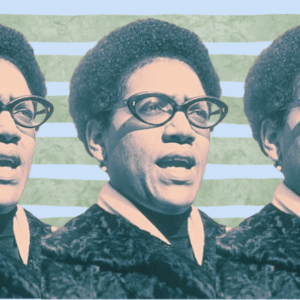The mournful repetitions of Emily Brandt’s stunning new prose poem break open a world of American suburbia. Behind and around the poem is the familiar sensation that millions of families in this country, and across the world, live out a sense of estrangement and yet familiarity. The poem’s imagery gives it the faintest air of contemporaneity, but at the same time, is the poem 1980, 1990, 2000, 2010? I would argue that the fabric and texture of the world it creates is all of them simultaneously, because Brandt is a poet after the way in which history inevitably sticks to the domestic objects and routine situations that try to peel free from it. The litany extends from trauma and humor, from violence and body type, to the particular eerie/casual way in which largely white neighborhoods mark and announce the ethnicity and race of “others” (a Chinese doctor and his wife, a black man, Jews). The structure of suburbia is the structure of this poem—its cookie-cutter grammars, its lukewarm sensationalisms, its sober recognition of grief and loss hiding in plain sight as the status quo. Isn’t quaintness terrifying? Her art makes it so.
—Adam Fitzgerald, Poetry Editor
The Harbor
In this house, cancer. In this house arthritis, a severed limb, hot wax. In this house, there’s a cheater. In this house, travel low. In this house, a body dull and steady as a rock. In this house, a mother pulls mouse traps down from closet shelves, slaps a child’s hands like hoards of rodent feet. In this house, a man girl-pulled her from bed and to the backseat of his car. In this house, the Christmas bulbs stay up til Valentine’s, a schism in the rig. In this house, a dog that stings. In this house, the shower’s always cold. In this house, six boxes of fruit roll-ups in a variety of flavors. In this house, watch the father. In this house, everyone says their prayers. In this house, if given a choice. In this house, there are spirits, unfriendly. In this house, an indoor pool and two renters. In this house, a Chinese doctor and his wife that no one’s ever seen. In this house, the Missus called the cops when a black man passed by, windows down and cricket song. In this house, alabaster teeth and gingham breath. In this house, heroin in a teenage vein. In these houses, cocaine. In this house, there is a very small dog a very loud small dog. In this house, the blinds match the carpet. In this house, everyone belongs to a choir. In this house, a trampoline. In this house, Jews. In this house, a very tan man eating an orange. In this house, two sons are skinny and one son is fat. In this house, no children are allowed. In this house, nails the length of spider leaves and platinum hair. In this house, the lights are out on Halloween. In this house, a priest comes for dinner. In this house, a surge of electricity set fire but everyone survived. In this house, a recluse who sits at her window, sometimes will wave.
Emily Brandt
Emily Brandt is the author of three chapbooks: Sleeptalk or Not At All (Horse Less Press), ManWorld (dancing girl press) and Behind Teeth (Recreation League). Her poems have appeared in The Recluse, The Offing, Apogee, The Atlas Review, and other journals. She earned her MFA from New York University where she facilitated the Veterans Writing Workshop. She’s been in residence at Saltonstall Arts Colony and a Fellow at Poets House. Emily is a co-founding editor of No, Dear and Web Acquisitions Editor for VIDA. She lives and teaches in Brooklyn.













